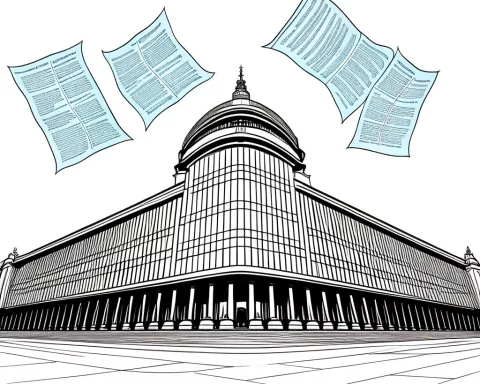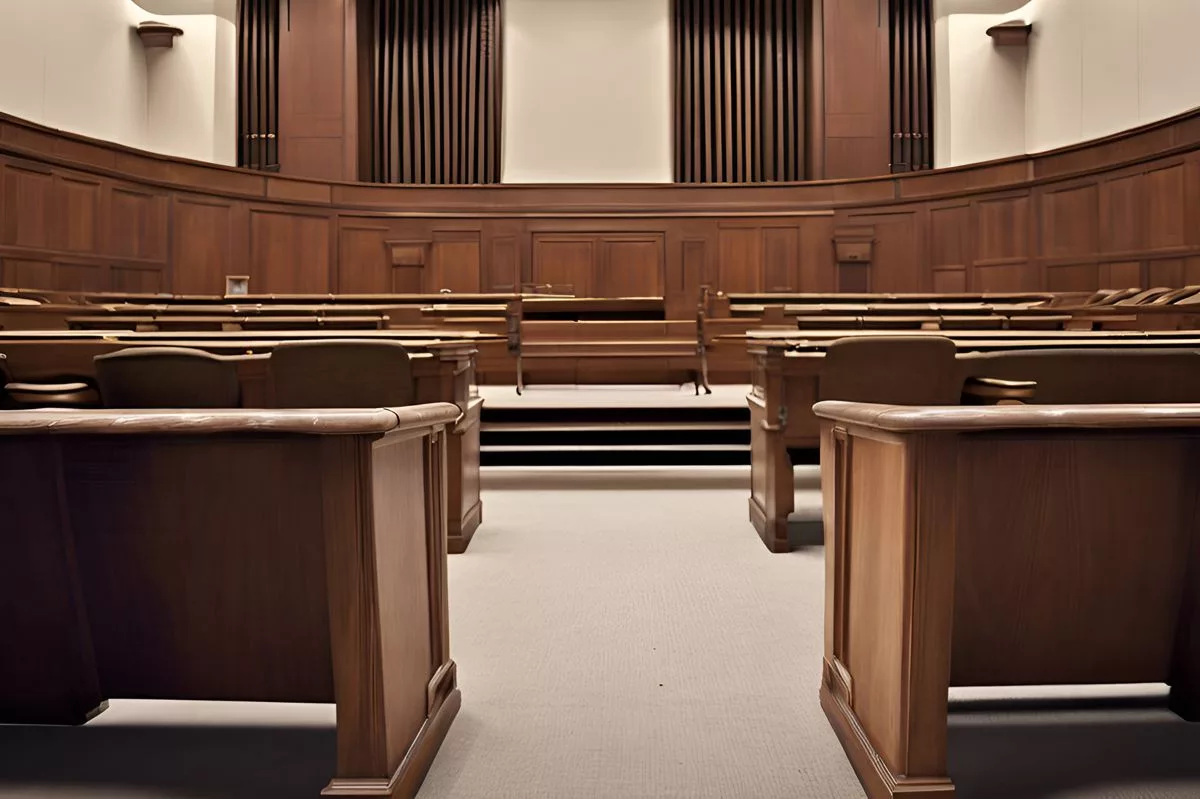In Cape Town, a vibrant call for fair housing is echoing through the streets as activists demand the use of the Tafelberg site for social housing. Hundreds gathered outside Premier Alan Winde’s residence, urging him to be open about R500 million set aside for housing, a plea fueled by a history of injustice. The protesters, undeterred by legal obstacles, continue their fight for a better future, highlighting the city’s deep-rooted struggles with housing and inequality. Through their determination and unity, they showcase a community’s dream for a more just and equitable Cape Town.
What is Cape Town’s call for equitable housing?
Cape Town’s call for equitable housing centers on community activism advocating for the allocation of the Tafelberg site for social housing. Activists demand transparency regarding R500 million in housing funds, urging government accountability to address historical injustices and ongoing urban housing disparities.
A Stirring Dawn of Activism
In the chilly early hours of last Monday, the streets of Cape Town came alive with the fervor of community activism. A significant movement unfolded as hundreds of housing advocates from Reclaim the City and Ndifuna Ukwazi converged outside the official residence of Western Cape Premier Alan Winde. Their rallying cries called for transparency and accountability regarding R500 million designated for housing. They demanded the release of valuable provincial parking sites and the Tafelberg site for social housing. This robust scene of civic engagement showcased a community’s passionate push for equitable urban development.
At the heart of this demonstration lies a narrative marked by legal skirmishes and unyielding determination. Over 400 citizens signed a petition urging Premier Winde to allocate the Tafelberg site for social housing. This plea persisted despite a Supreme Court of Appeal ruling favoring the provincial stance. The activists, undeterred, have now taken their case to the Constitutional Court. Their petition adamantly states that the upcoming court challenge should not excuse inaction, underscoring the urgency of their cause.
Urban housing in Cape Town is not merely a matter of logistics; it is deeply entwined with the city’s geography and history. The contested Tafelberg site, strategically located yet underutilized, epitomizes the broader struggle for social housing in a city fraught with economic disparities. The Western Cape Government’s Department of Infrastructure has initiated a public consultation process for the site, exploring potential development avenues. However, a key question remains: will these discussions lead to meaningful outcomes that truly address community needs?
Perspectives and Historical Context
Amidst this backdrop, Premier Winde’s stance on the issue provides a vital piece of the puzzle. GroundUp’s inquiry into potential meetings with the activists highlights a complex relationship. Winde acknowledges meeting with them several times, noting their primary focus on Tafelberg while other critical sites like Helen Bowden and District Six receive less attention. His remark about the activists resembling a political party rather than a social advocacy group highlights the strained dynamics between government and civil society.
Understanding these dynamics requires a historical lens. Cape Town, a city with a rich past, has long been a battleground for social justice campaigns. The lingering legacy of apartheid-era spatial planning continues to shape modern debates on housing and land use. The activists’ plea for the Tafelberg site’s release underscores the ongoing fight for spatial justice in a city still grappling with its historical injustices.
The narrative takes an intriguing turn with the Helen Bowden Nurses Home, occupied since 2017 by Reclaim the City as a form of protest. Premier Winde’s account of the events illuminates the complexities of eviction and development processes. This situation reflects a broader challenge faced by many urban centers: balancing the immediate needs of those without homes with a long-term vision for sustainable urban development.
Financial Complexities in Housing
The financial intricacies involved in housing delivery add another layer to this narrative. Budget constraints and fiscal challenges have undeniably impacted housing projects. A notable incident involved the purported return of R500 million to the Treasury due to “extortion,” highlighting the complex web of financial management and governance. Premier Winde emphasizes the province’s dedication to good governance, expressing a desire to ensure funds fulfill their intended purpose.
The mention of illegal invasions and extortion further complicates the housing delivery landscape. MEC Tertuis Simmers offers a stark account of the financial strain these issues have imposed on the Department of Infrastructure. Projects valued at R391 million were halted, revealing significant barriers faced by the provincial government. The allocation of R987 million for security since 2019 underscores the extraordinary measures required to protect public assets.
Amid these challenges, Cape Town’s housing crisis reflects broader national and global issues. Urbanization, inequality, and governance converge to shape the lives of ordinary citizens. The protest outside Premier Winde’s residence embodies the frustration and hope that define civic activism in the face of systemic challenges.
The Broader Context of Activism and Resilience
Artistic and historical movements provide a rich tapestry against which these contemporary events unfold. The struggle for social housing recalls the spirit of the Black Consciousness Movement and mirrors the creative activism of artists who have long used their craft to shed light on social issues. The vibrant murals and street art in Cape Town’s townships narrate tales of resistance and resilience, providing a cultural backdrop to the ongoing housing debate.
In Cape Town’s heart, where the legacy of apartheid’s spatial planning intersects with the aspirations of a democratic society, the fight for equitable housing persists. The interplay of civic activism, government policy, and financial constraints forms a dynamic narrative demanding careful navigation and bold vision.
This unfolding story in the historic streets of Cape Town serves as a poignant reminder of the enduring quest for social justice. Through protests, petitions, and legal battles, communities strive to reclaim their right to the city, advocating for spaces that reflect their dignity and aspirations. Amid challenges and setbacks, the journey towards equitable urban development endures, propelled by the unwavering spirit of those who dare to envision a better future.
FAQ on Cape Town’s Call for Equitable Housing
What is the main objective of the recent protests in Cape Town regarding housing?
The main objective of the protests is to advocate for the use of the Tafelberg site for social housing. Activists are demanding transparency about the R500 million allocated for housing and calling for government accountability to address historical injustices and ongoing urban housing disparities.
Who are the primary groups involved in the housing activism?
The primary groups involved include community organizations such as Reclaim the City and Ndifuna Ukwazi. These groups represent a coalition of citizens advocating for equitable housing and social justice in Cape Town.
What triggered the protests outside Premier Alan Winde’s residence?
The protests were triggered by a call for transparency regarding R500 million in housing funds and the allocation of the Tafelberg site for social housing. Hundreds of activists gathered to express their frustrations and demand accountability from the provincial government.
How has the historical context of Cape Town influenced the current housing activism?
Cape Town’s historical context, particularly the legacy of apartheid-era spatial planning, has significantly shaped the housing debate. The ongoing fight for spatial justice highlights the deep-rooted inequalities that persist in the city, driving activists to seek solutions that address both historical and contemporary injustices.
What are some financial challenges affecting housing delivery in Cape Town?
Financial challenges include budget constraints, issues of governance, and alleged extortion, which have complicated housing projects. Notably, there was an incident where R500 million was reportedly returned to the Treasury due to financial mismanagement, impacting the ability to deliver essential housing services.
How does the current activism relate to broader social movements and artistic expressions in Cape Town?
The current activism echoes the spirit of historical social justice movements, such as the Black Consciousness Movement. It is also reflected in the vibrant murals and street art throughout Cape Town, which serve as powerful tools for resistance and cultural expression, highlighting social issues and the community’s enduring quest for equitable housing.












